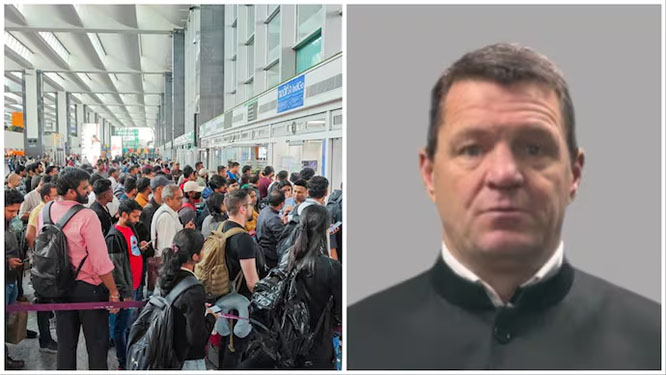New Delhi, Dec 10: The Supreme Court on Friday sought the Centre's response on issues like whether district cooperative banks could be allowed to accept deposits in demonetised notes with some stringent regulations and why banks are unable to allow minimum weekly withdrawals of Rs. 24,000 to customers.

While the high-decibel hearing was on, the bench, also comprising Justices A M Khanwilkar and D Y Chandrachud, said though demonetisation has been carried with long term beneficial aims, its immediate concern was to ease the inconvenience of the people and asked Attorney General Mukul Rohatgi to apprise it on December 14 on issues relating to district cooperative banks and the non-adherence to fixed weekly withdrawal limits by the banks.
Further, the bench said it would like to know the government's stand on the demand for extending the order for hospitals to accept the fees in demonetised notes.
Keeping in mind that the law under which the November 8 notification was issued for demonetisation has been challenged, the bench proposed to frame legal questions and told Mr Rohatgi that since a detailed and long hearing would be required, he should ponder over whether the matter can be referred to a five-judge constitution bench.
The bench said it would take a decision on December 14 on the plea of the Centre that proceedings in various high courts on petitions relating to demonetisation be stayed and transferred either to the apex court or one of the High Courts for adjudication.
"Every day new petitions are being filed in the Supreme Court and in High Courts. The High Courts are adjourning the case for one day or two days... law officers are being asked to appear," Mr Rohatgi said and asked the bench to consider staying the proceedings in High Courts and transferring them either to the Supreme Court or to one high court.
The bench also considered submissions of senior advocate Kapil Sibal, appearing for one of petitioners opposing the demonetisation, and the Attorney General in framing legal issues to be deliberated upon by it in future hearing.
"We can straightaway frame the questions. The first one can be: whether the November 8 notification is ultra-vires to the Section 26 (2) (power to demonetise) of the Reserve Bank of India Act," the bench said.
Indicating that it was "open to the idea of sending the matters to a five-judge bench", the bench said the second question could be whether the demonetisation "falls foul of" Article 300A which says that no person shall be deprived of his/her property without a provision in law.
Whether the decision is unconstitutional as it violates Article 14 (equality before the law) and Article 19(1)(g) (freedom to practice profession and occupation) under the Constitution, it said.
Accepting Mr Sibal's suggestion, the bench said the question that the restriction on withdrawal of "legitimate and taxed money" by the banks is violative of various fundamental rights.
"Whether district cooperative banks have been discriminated against by denial of the permission to accept deposits," the bench posed.
Mr Sibal said he has also challenged the validity of the RBI Act provision on the ground of "excessive delegation of power" to demonetise currency notes.
Then came the suggestion of the Attorney General who said that a question was "what is the scope of judicial review in the matters of fiscal/economic policy". The bench accepted the suggestion.
Raising the issue of CPI(M) filing the PIL in the instant matter, Mr Rohatgi said another question would be "can a political party file the public interest litigation?"
The bench, during the hearing, asked Attorney General about the benefits and objectives of the demonetisation.
Referring to the November 8 notification, Mr Rohatgi said it was for fighting blackmoney, ill-gotten money used for terror financing and curbing fake currency.
He said the Rs. 500 and Rs. 1,000 currency notes constituted 86 per cent of total currency and the move was kept secret to make demonetisation effective.
"It was not possible to print ten lakh crore currency in advance and re-calibrate all ATMs in advance. The cat would have been out of the bag. There is bound to have been some kind of inconvenience," the Attorney General said.
He referred to the recent decision of the Centre to incentivise digital transcations and said that people would be benefitted if they pay for their rail and air tickets and other services digitally.
Mr Rohatgi said around 12 lakh crore demonetised currency notes have come back to the banking system.
He submitted that economic policy decisions should not be judicially reviewed.








Comments
Add new comment